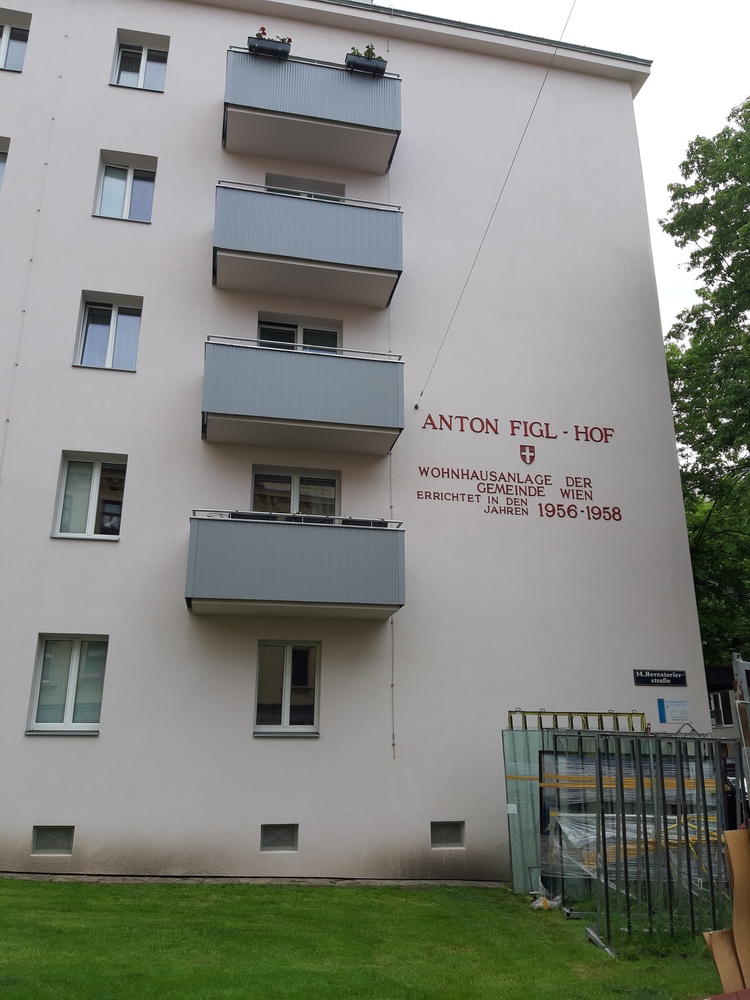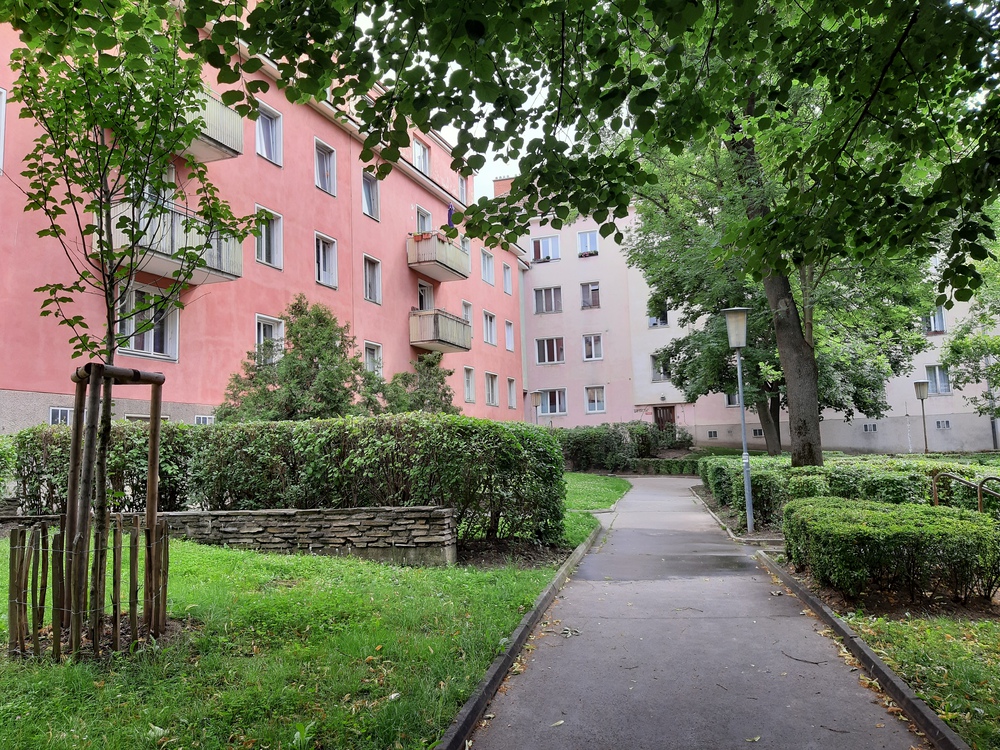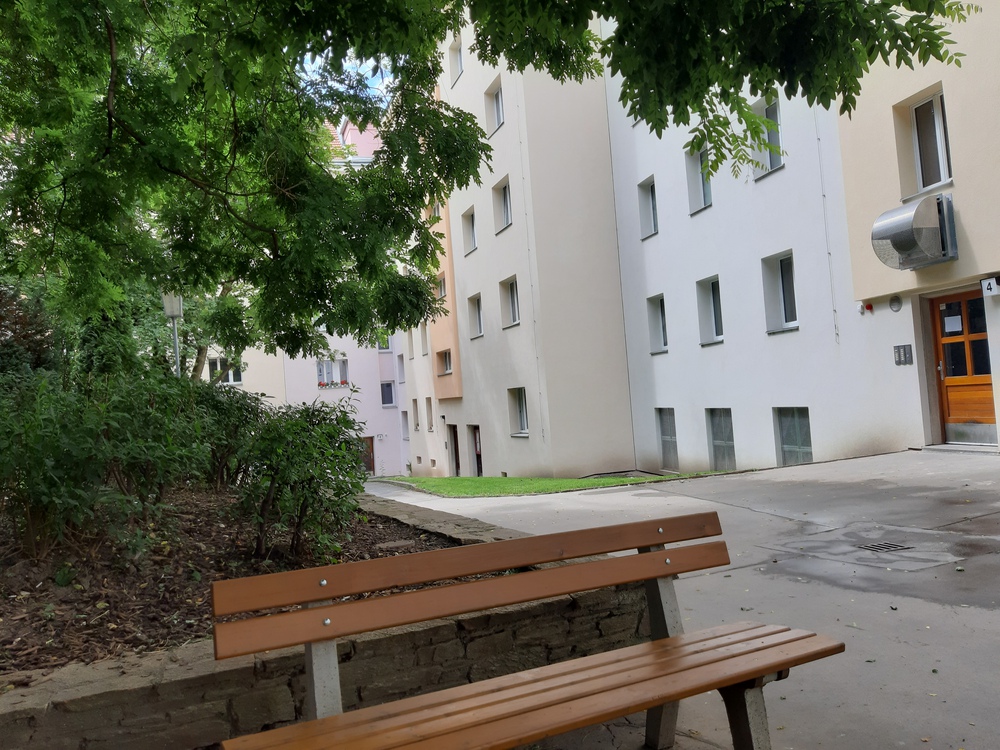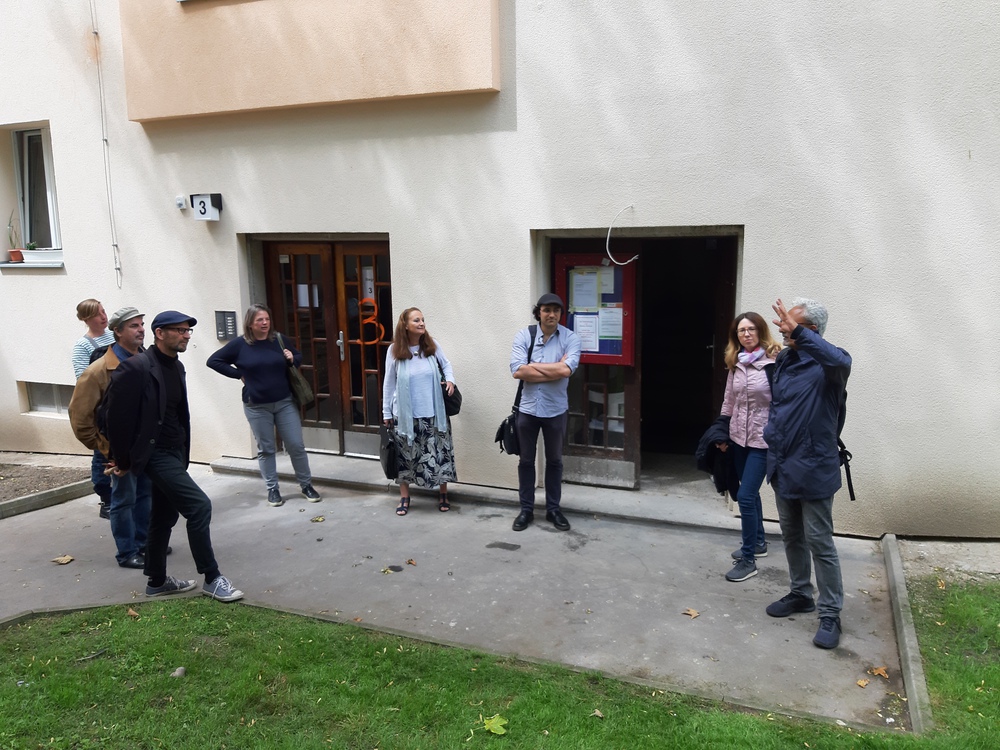Klingender Gemeindebau
A research project of the MMRC, together with wohnpartner (with the participation of the departments for "Basic Groundwork and Quality Assurance" and "Culture-Oriented Community Work" as well as the wohnpartner team 14_15_16), the Phonogrammarchiv of the Austrian Academy of Sciences (PhA), the Tenants' Advisory Council of the Anton-Figl-Hof and Wiener Wohnen (Completed)
Brief description:
What role does music play in the lives of the residents of a Viennese municipal housing complex? – The project Klingender Gemeindebau pursues this exciting question.
In the discourse of affordable housing and the increasing heterogeneity of urban life, municipal housing in Vienna, called 'Wiener Gemeindebau', is gaining new significance in research and cultural work. However, it has also been a field imbued with the ideological projections of various political parties: Pesented in the media as both sociopolitical utopia of the so-called Red Vienna period and ‘hotspot’ of culturalized conflicts, municipal housing is a sensitive field within which questions of cultural coexistence in a confined living space are constantly negotiated.
The ‘Klingender Gemeindebau’ (Sounding out municipal housing) was designed as a applied and collaborative research project. It was carried out from March 2021 to August 2022 at the Anton-Figl-Hof, a medium-sized complex from the late 1950s in Vienna’s fourteenth district. Through fieldwork and interviews with local tenants, empirical data was generated that subsequently served as a basis for the implementation of musical activities on site that adressed the tenats’ needs. Although the course of the project was particularly influenced by the challenges of the COVID-19 pandemic and increased social isolation, 22 interviews and seven musical events - concerts, singalongs and instrument workshops - were realized together with the project partners.
The central research question focused on the residents' musical identifications, the various habits of consuming and making music in their everyday lives and the relation to their own living situation. Neighbourly relationships were also of interest, which were revealed, for example, in listening to music as a form of social encounter or in the discourse about noise complaints. Eventually, the approach to municipal housing via music and sound has the potential to capture the musical diversity in the Anton-Figl-Hof as a case study with its heterogeneous composition of biographies, life situations and cultural preferences. Moreover, municipal housing can also be understood as a space permeated by various and ambivalent stigmatization and discrimination, in which belonging to a residential group was also negotiated through music.
Project lead: Ursula Hemetek
Project team: Jasemin Khaleli
Project duration: March 1, 2021 to June 31, 2022 (research phase), followed by on-site implementation phase (completed)
Funding: Austrian Science Fund FWF Grant-DOI 10.55776/Z352





